
Get Your Free 1st Issue
Your Homes Overseas Magazine!
Discover the best destinations, property tips, and lifestyle insights from around the world.
GET YOUR FREE MAGAZINE HERE!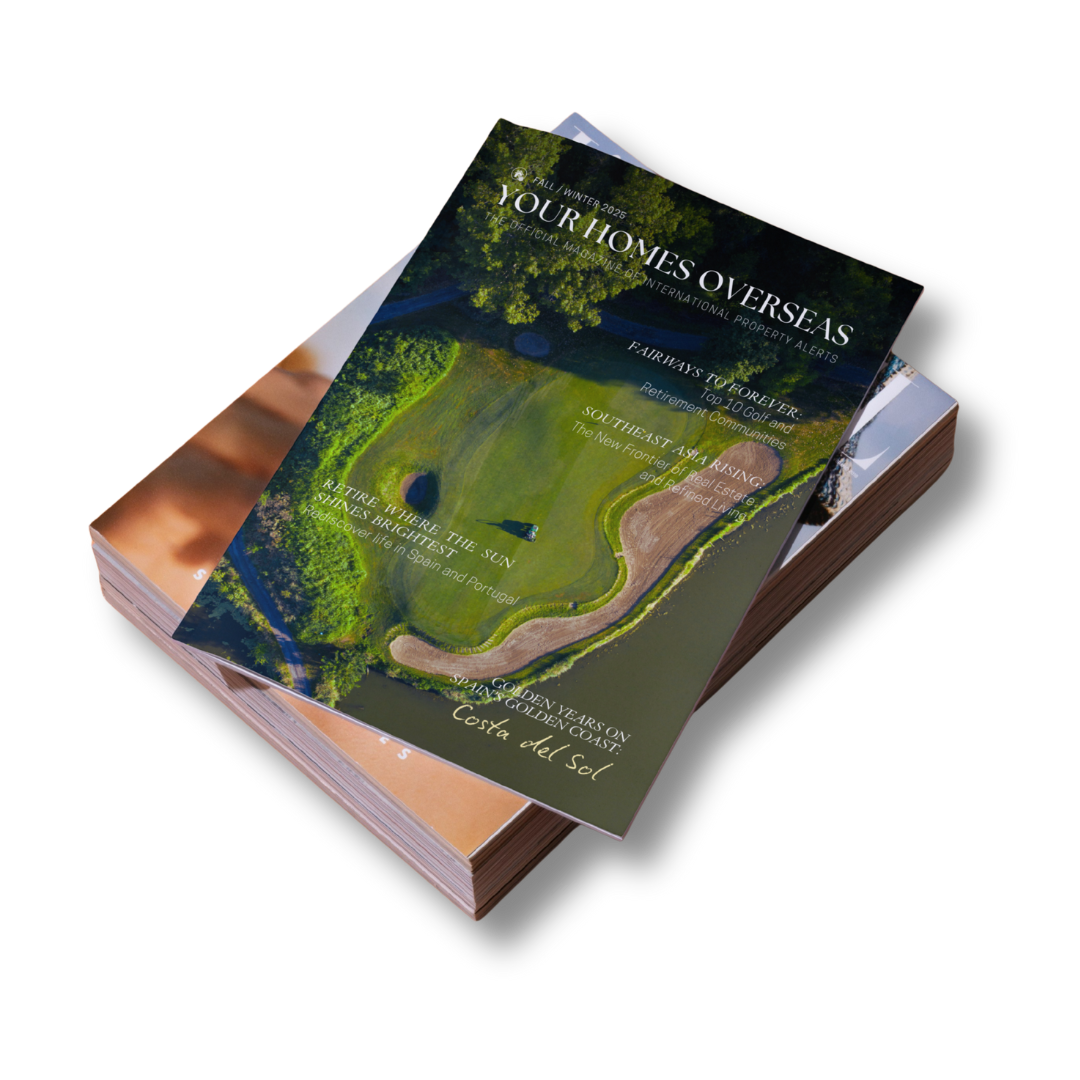

Discover the best destinations, property tips, and lifestyle insights from around the world.
GET YOUR FREE MAGAZINE HERE!

Spain is a beautiful country with a lot to offer. Whether you’re thinking of moving here or just visiting, there are many things to enjoy. From its sunny weather to its rich culture, Spain has something for everyone. The country is known for its friendly people, delicious food, and lively festivals. Living in Spain can give you the chance to experience a new lifestyle full of excitement and adventure.
At International Property Alerts, we help you understand what living in Spain is really like. This guide will give you all the details you need, from the weather and cost of living to visa requirements and housing options. If you’re thinking about moving or just want to know more, you’ll find helpful information here. We aim to make your journey to Spain as smooth and easy as possible.

In this section of our Spain Country Guide, we’ll cover basic but useful details about the country. Understanding these simple facts will make your journey easier, whether you are planning to visit or move to Spain. Knowing the country code and other important information is a great first step in preparing for your new life.
Here are a few key details you should know about Spain:
Knowing Spain’s country code is important, especially when you need to make calls or send money. For example, when calling Spain from another country, you will need the phone code +34. Also, ES is the country’s official abbreviation, which you’ll find when browsing websites or filling out forms.
These small details may seem simple, but they make a big difference when settling into your new life. Therefore, learning about the country code is one of the first steps to help you adjust to life in Spain. In other words, understanding these basics will help you feel more at home as you begin your adventure in Spain.
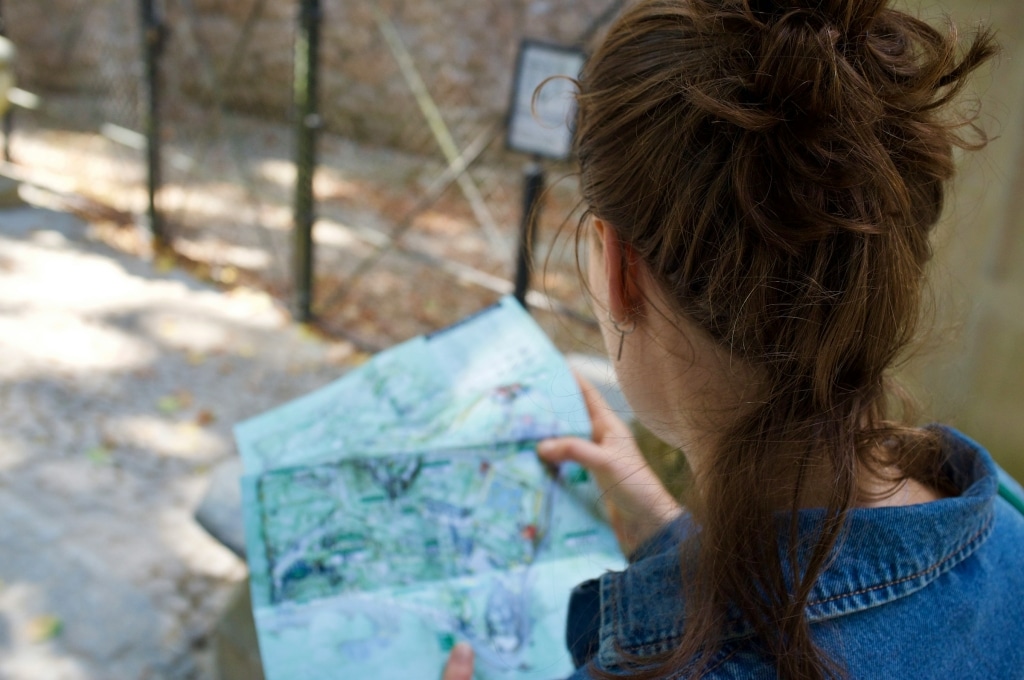
Spain is a country in southern Europe. It is on the Iberian Peninsula, sharing this landmass with Portugal. To the east and south, Spain has a coastline along the Mediterranean Sea, and to the north and west, it is bordered by France and the Atlantic Ocean. This gives Spain a unique position, with beautiful beaches, mountains, and growing opportunities in international property.
Spain’s location makes it an exciting country to visit and live in. It has easy access to the sea and land, connecting Europe to many other parts of the world. So, living in Spain means you get mild weather, scenic views, and a rich culture.
In addition, Spain offers many different places to live, from bustling cities like Madrid and Barcelona to quiet coastal towns. If you’re thinking about moving to Spain, you can check out our properties to find a place that suits your needs and lifestyle.
In this section, we’ll look at the weather in Spain and what you can expect throughout the year. Spain has a variety of climates, so the weather can change depending on where you are. Overall, Spain has a sunny, Mediterranean climate, making it a wonderful place to live and visit.
In addition, the weather in Spain is a big reason why people choose to live here. The mild winters and hot summers make it a great destination for those who love sunshine. Whether you’re enjoying a relaxing day at the beach or exploring the countryside, Spain offers year-round pleasant weather. Also, if you’re considering investing in property in Spain or looking into real estate in the Philippines, you can check out more options on our real estate listings.
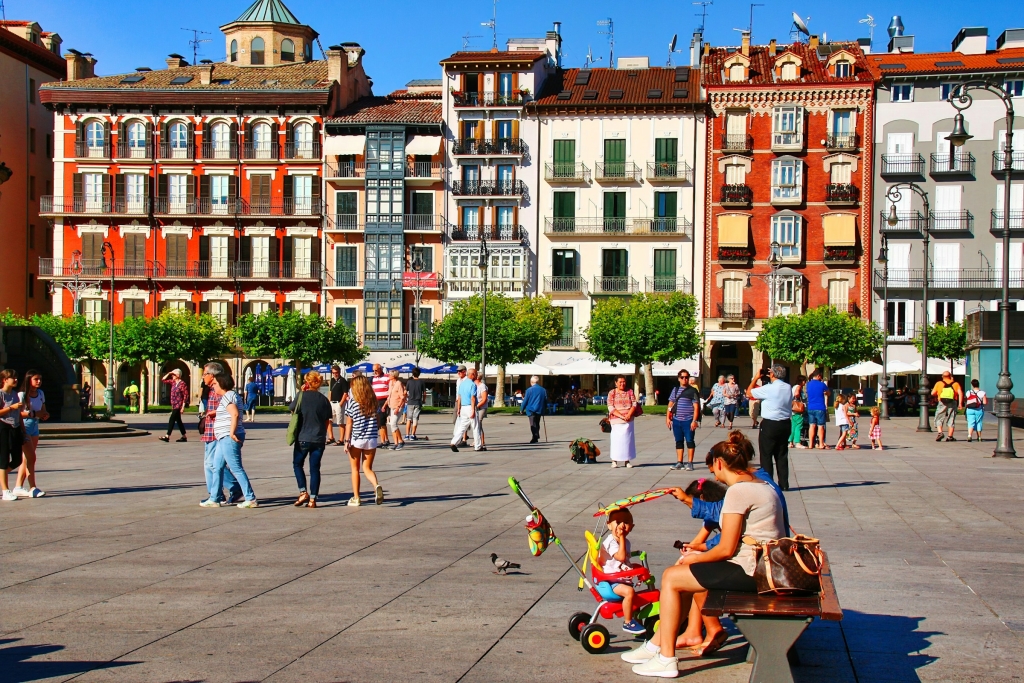
If you’re considering moving to Spain, it’s important to know how much things will cost. Understanding the cost of living helps you plan your budget and decide where to live. In this section, we’ll break down some common expenses like housing, food, utilities, transport, and healthcare.
Living in Spain can be affordable depending on your location and lifestyle. The cost of living in smaller cities or rural areas is lower compared to big cities like Madrid and Barcelona. In addition, Spain offers many options for different budgets, so you can find a place that suits your needs. Also, if you’re interested in knowing more about what services we offer, check out our services.
Spain has a very rich and exciting culture. It has been shaped by many different influences over the years. From its music to its food, festivals, and traditions, Spain has a lot to offer. People all around the world visit Spain to experience its lively atmosphere.
Spain is known for its friendly people and strong family values. The Spanish enjoy spending time with family and friends. Many traditions have been passed down through generations. Spanish customs include things like family meals, celebrating local festivals, and enjoying art. Also, many of Spain’s holidays are influenced by its Catholic roots, which makes its festivals very special.
Spanish social life is centered around family and community. People in Spain love socializing and often spend time at cafes, enjoying a coffee or a meal. Also, Spain’s social life is very relaxed, and people enjoy their free time. This relaxed atmosphere helps make Spain a great place to live or visit.
In addition, if you’re interested in exploring real estate in the UAE, you can check out our listings here. Spain and the UAE have many similarities in terms of rich culture and exciting lifestyles.
If you are planning to live or work in Spain, it’s important to understand the visa and immigration process. There are different types of visas you can apply for, depending on your reasons for moving. These visas include tourist, work, student, and residency visas.
If you want to become a resident or citizen of Spain, the immigration process is important. So, first, you need to choose the right visa type for your situation. After that, you will need to gather documents like proof of employment, income, health insurance, and a clean criminal record. In addition, you may need to pass a language test, especially if you plan to become a permanent resident or citizen.
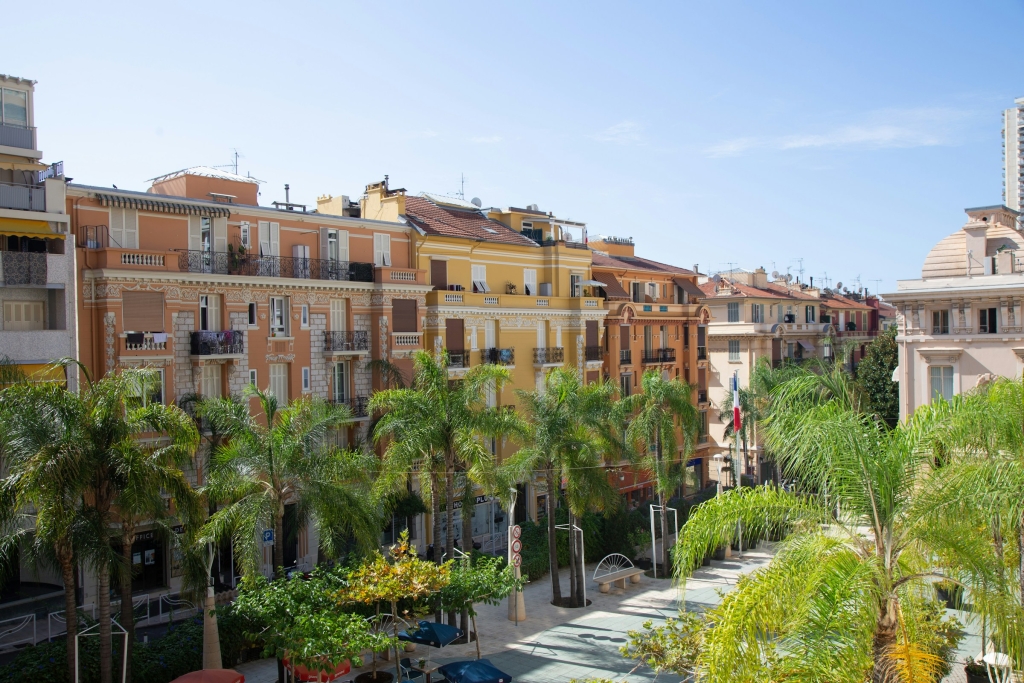
If you’re planning to live in Spain, it’s important to understand housing options, residency requirements, and retirement options. This section will help you with all the details you need to know.
Finding a place to live in Spain is a big part of your move. So, Spain offers many different types of housing, from apartments in the city to houses in the countryside. Rental prices vary depending on the area. For instance, living in Madrid or Barcelona will usually cost more than in smaller cities or rural areas.
In order to live in Spain long-term, you need to meet the country’s residency requirements. So, depending on your situation, you may need to apply for a visa or residency permit.
Spain is a popular destination for retirees. The country offers a high quality of life, good healthcare, and a relaxed lifestyle. In addition, Spain’s warm climate makes it a great place to enjoy your retirement years.
Spain is a country with a lot of history and interesting features. If you’re thinking about visiting or moving there, it’s helpful to know some fun facts. So, here are a few things you may find surprising about Spain.
Spain is known for its exciting festivals. For instance, one of the most famous festivals is La Tomatina, where people throw tomatoes at each other. Another popular festival is Running of the Bulls in Pamplona. These events are full of energy and bring people from all over the world to Spain.
Spain’s food is loved worldwide. Spanish cuisine includes many different dishes depending on the region. One of the most famous dishes is paella, a rice dish with seafood or meat. Another popular dish is tapas, small portions of different foods that are perfect for sharing.
In addition, Spain is famous for its churros, fried dough pastries, usually served with hot chocolate.
Spain has a mix of climates. So, the weather can change depending on where you are. In general, Spain has warm summers and mild winters. In coastal areas, it is often sunny and pleasant, while inland areas can get quite hot in the summer.
Spain’s Famous Landmarks
Spain is home to many famous landmarks. For example, the Sagrada Familia in Barcelona is a large, unfinished church designed by architect Antoni Gaudí. Alhambra, a palace in Granada, is another beautiful historical site. These landmarks show Spain’s rich history and stunning architecture.
Spain’s Economy
Spain has a strong economy. It is known for its tourism, which is one of the country’s most important industries. Spain is also famous for its wine, especially Rioja wine, which is made in the northern part of the country.
If you need help planning your move or learning more about Spain, feel free to contact us. We are happy to assist you with all the information you need to make your transition smooth and easy.
The best time to visit Spain is during spring (March to May) or fall (September to November). The weather is mild, and there are fewer tourists.
If you’re traveling from outside the EU, you will need a visa. For stays longer than 90 days, you will need to apply for a residency visa.
The cost of living in Spain is lower than in many other European countries. However, living in big cities like Madrid and Barcelona can be more expensive.
The main language spoken in Spain is Spanish, also called Castilian. In some regions, people speak other languages like Catalan, Galician, or Basque.
Yes, Spain is a popular destination for retirees. It offers a high quality of life, good healthcare, and beautiful weather, especially in coastal areas.
About International Property Alerts
International Property Alerts is a premier global platform connecting real estate investors with handpicked opportunities in emerging and lifestyle-driven markets. Through curated listings, expert guidance, and market insights, we help buyers make confident property decisions worldwide.
Media Contact:

Phone: +4477 1923 8132
📱 WhatsApp: +63927 073 9530
Email: office@internationalpropertyalerts.com

Elle Resort & Beach Club offers a rare chance to own property in one of the most desirable coastal locations. With limited units, strong capital growth potential, and unmatched resort facilities, this is your opportunity to secure a beachfront lifestyle with long-term value.
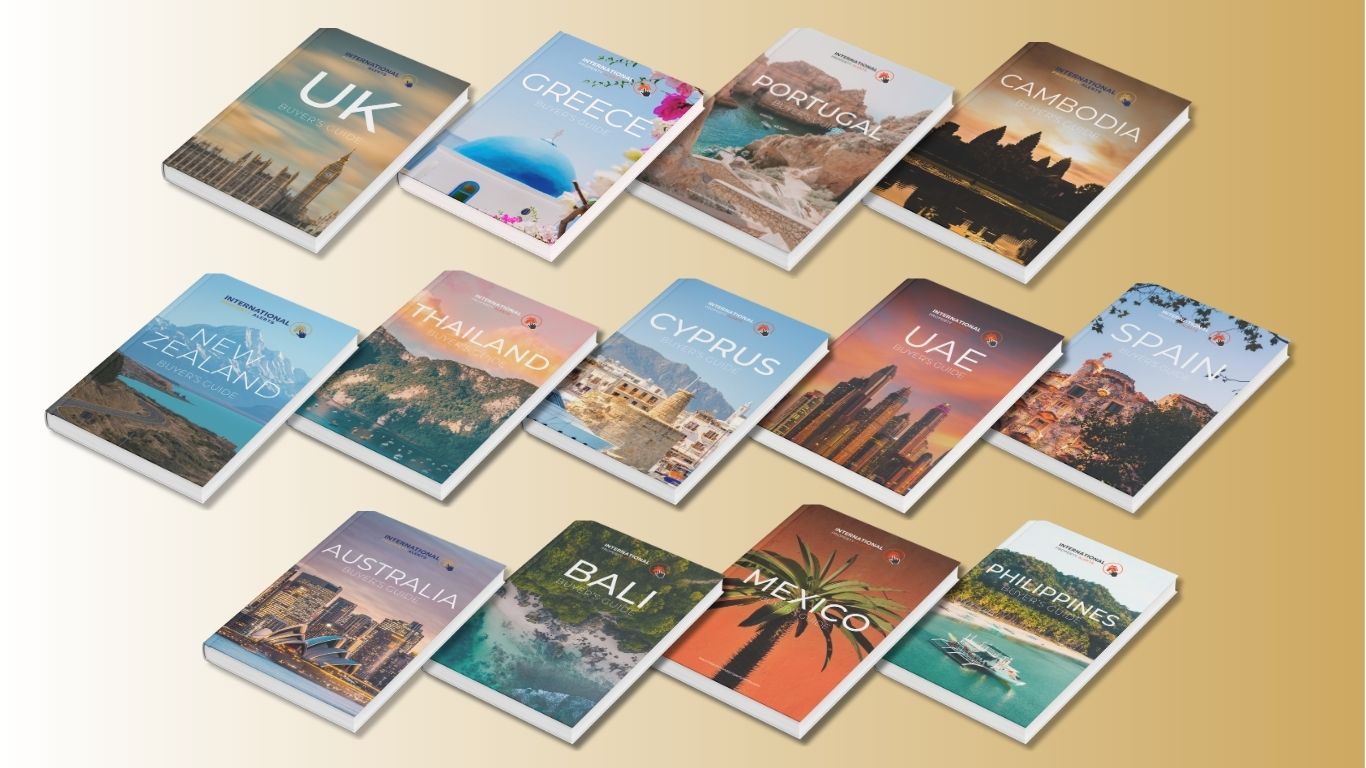
Thinking about buying property abroad? Don’t make the move without the right knowledge. Our Free Buyers Guide gives you essential insights on legal steps, taxes, financing, and the best markets worldwide. Trusted by international buyers and investors.

Wake up to bright, spacious living with stunning views and modern comforts. Whether for family living, retirement, or a stylish retreat, Sudara Residences makes your dream home a reality
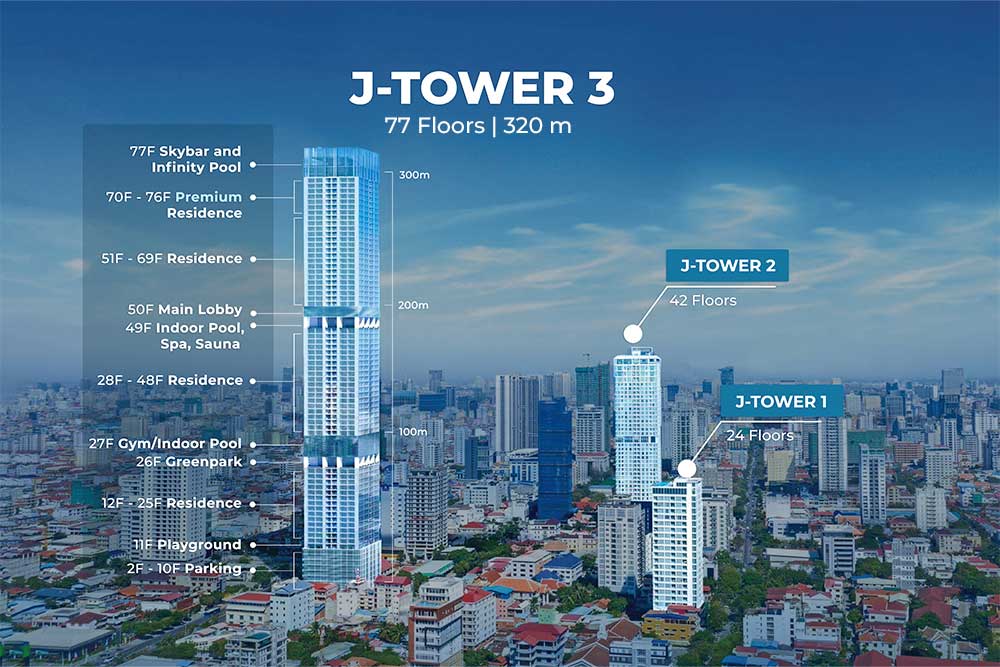
Discover curated property listings with IPS—residential, commercial, villas, land—and get expert guidance through every step.
BONUS: FREE Cambodia Buyer’s Guide

High visibility. Targeted audience. Maximum exposure. Rent this space and let your brand shine.

Get your properties in front of high-intent investors. Showcase your listings to buyers worldwide.

From pounds to pesos, yen to dollars. ⚡ Quick. Easy. Secure.
Compare listings
ComparePlease enter your username or email address. You will receive a link to create a new password via email.